Southern strike: GTR boss 'agrees to fresh talks'
- Published
Charles Horton (left) and Mick Lynch held impromptu discussions after the BBC recording
The boss of Southern rail and a union chief have agreed to hold fresh talks in a bid to resolve the crisis on the network, the BBC understands.
Charles Horton, of parent firm GTR, and Mick Lynch, of the RMT, held impromptu discussions after an angry TV debate hosted by the BBC.
During recorded exchanges between the pair, commuters in the audience demanded a quick end to the dispute.
Members of the Aslef union are due to walk out for three days this week.
The BBC understands the pair agreed on the need to resolve the dispute and are expected to enter into further communication on Monday.
Commuters have been hit by strikes, delays and cancellations while Southern has been locked in a bitter dispute with the RMT and Aslef over the introduction of driver-only operated (DOO) trains.
Mick Lynch, from the RMT union, said he wanted a "common sense" settlement
Despite talks being held, no agreement has been reached between the parties.
During the half-hour debate, held in East Grinstead, Mr Horton said the union's actions had been "grossly disproportionate".
"I also think that they are causing immeasurable damage, not only to passengers but also to the regional economy as well and it is an appalling situation," he said.
Mr Lynch, RMT assistant general secretary, said he wanted a settlement "based on a common sense approach from both parties".
"We think that is available right now - this afternoon if Charles wants to go outside and draft something up with me - that settlement is available immediately," he said.
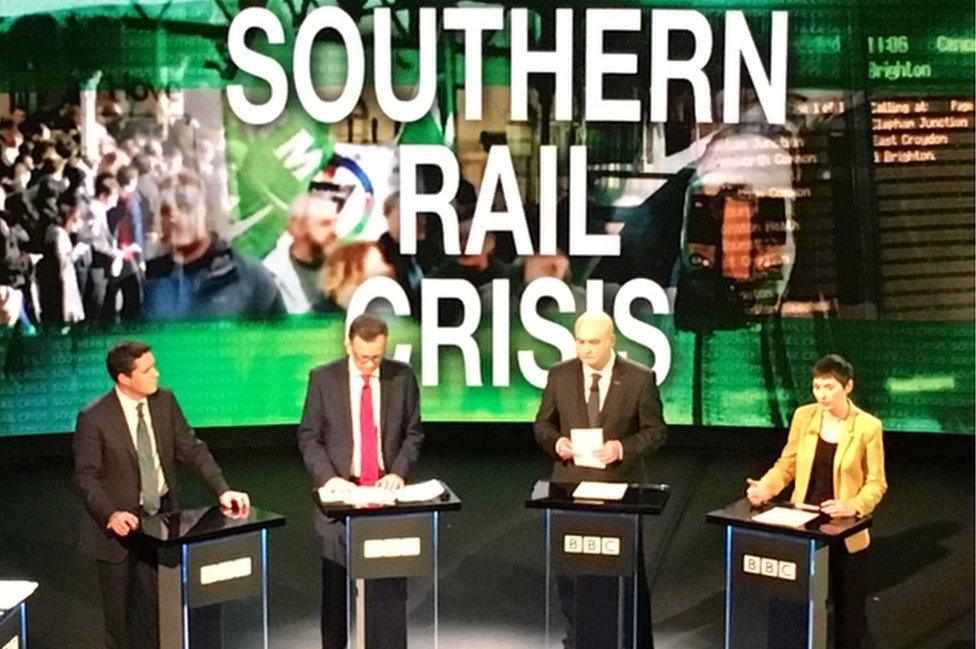
The Southern Rail Crisis panel (from left): Huw Merriman, Charles Horton, Mick Lynch, and Caroline Pidgeon
The debate also heard from Conservative MP for Bexhill and Battle, Huw Merriman, who is a member of the Transport Select Committee, and Liberal Democrat Caroline Pidgeon, chair of the London Assembly Transport Committee.
Last week, the industry regulator, the Office of Rail and Road (ORR), repeated its view that DOO is a "safe method", external of dispatching trains, providing "suitable equipment, procedures and competent staff" are in place.
Mr Merriman told the audience in Sunday's debate that as a result he "struggled to see the justification for a strike by 300 people that impacts 300,000 people on a daily basis".
Addressing Mr Lynch, he said: "It's a practice that's used on 30% of the network where your members are operating."
Ms Pidgeon, who wants to see Southern stripped of its franchise, and Transport for London taking charge, said the "rights of passengers have got to be far more important than this cheap political point scoring".
"The unions have got to get a grip on this and get round the table and come up with a deal because we're all suffering," she told the audience.
Commuters who regularly use Southern rail spoke emotionally about how they have had to deal with the rail company's poor service.
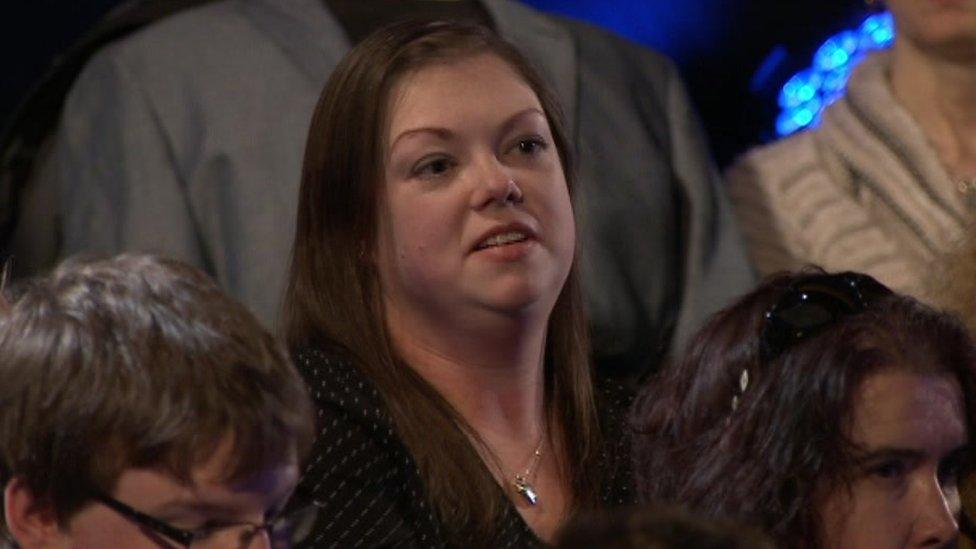
Emma Green told the panel she could no longer commute from Littlehampton to London
Emma Green, from Littlehampton in West Sussex, said journeys of up to four-and-a-half hours had forced her to quit her job in London to allow her to see her eight-year-old son.
"How many more peoples' lives have to be affected?" she asked.
Christian Brideson, from Brighton, asked Mr Horton and Mr Lynch how they slept at night knowing the impact the strike was having on individuals.
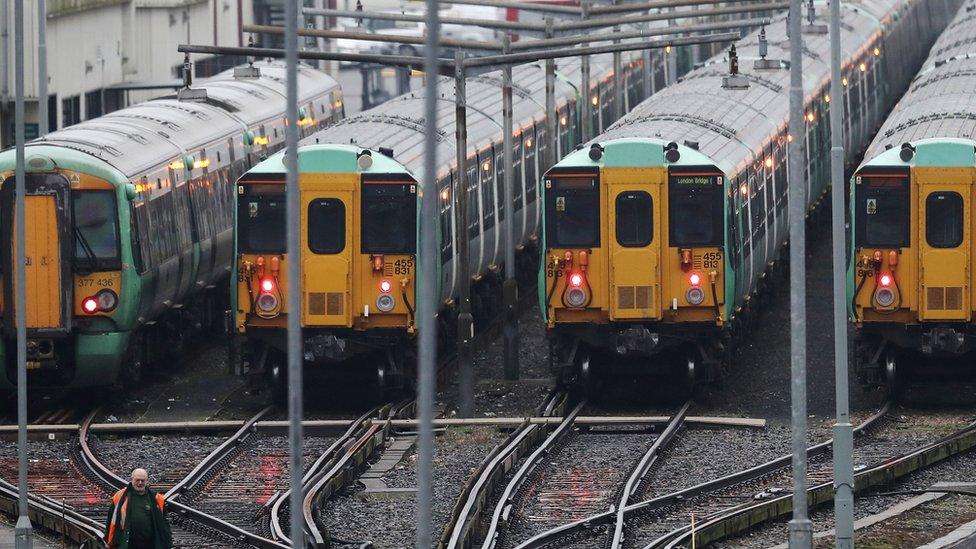
The Southern network has been crippled by industrial action since last April
Drivers across the Southern network will strike on Tuesday, Wednesday and Friday with three further strikes planned for 24, 25 and 27 January.
The RMT, whose members are mostly conductors, also represents 12 drivers who are taking part in the Aslef action.
Aslef members are also operating an overtime ban.
Southern Rail Crisis will be shown on BBC1 in London, the South East and the South at 19:30 GMT, and will be available on the BBC iPlayer shortly afterwards.
- Published5 January 2017
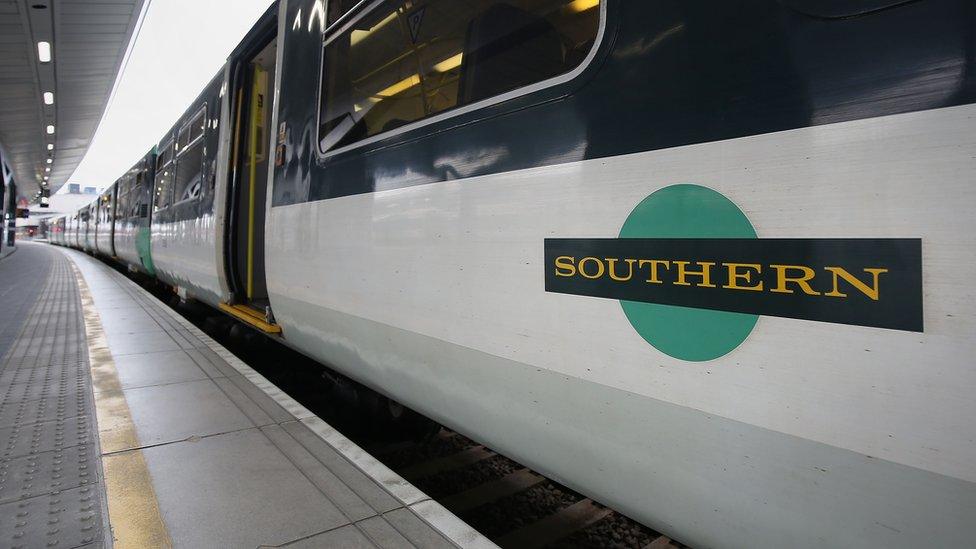
- Published4 January 2017

- Published3 January 2017
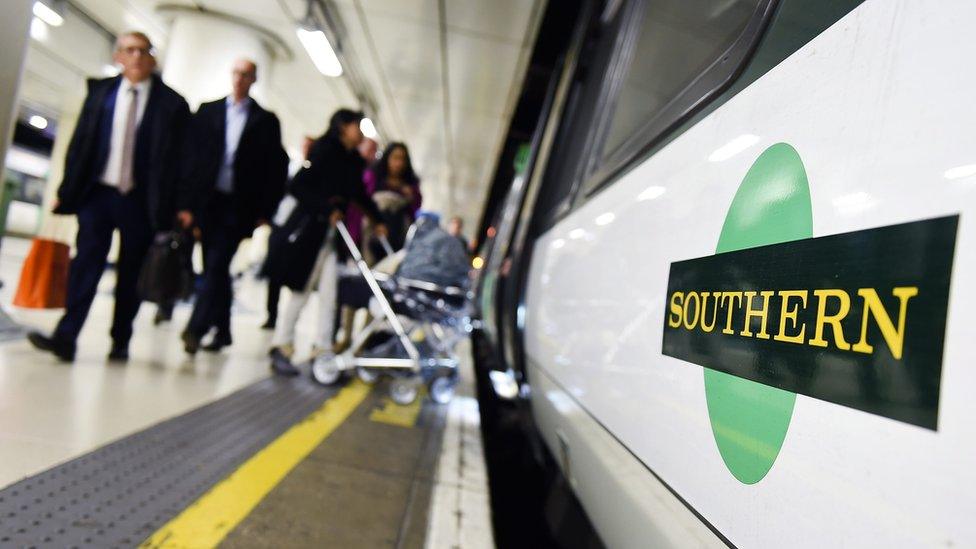
- Published2 January 2017

- Published1 January 2017
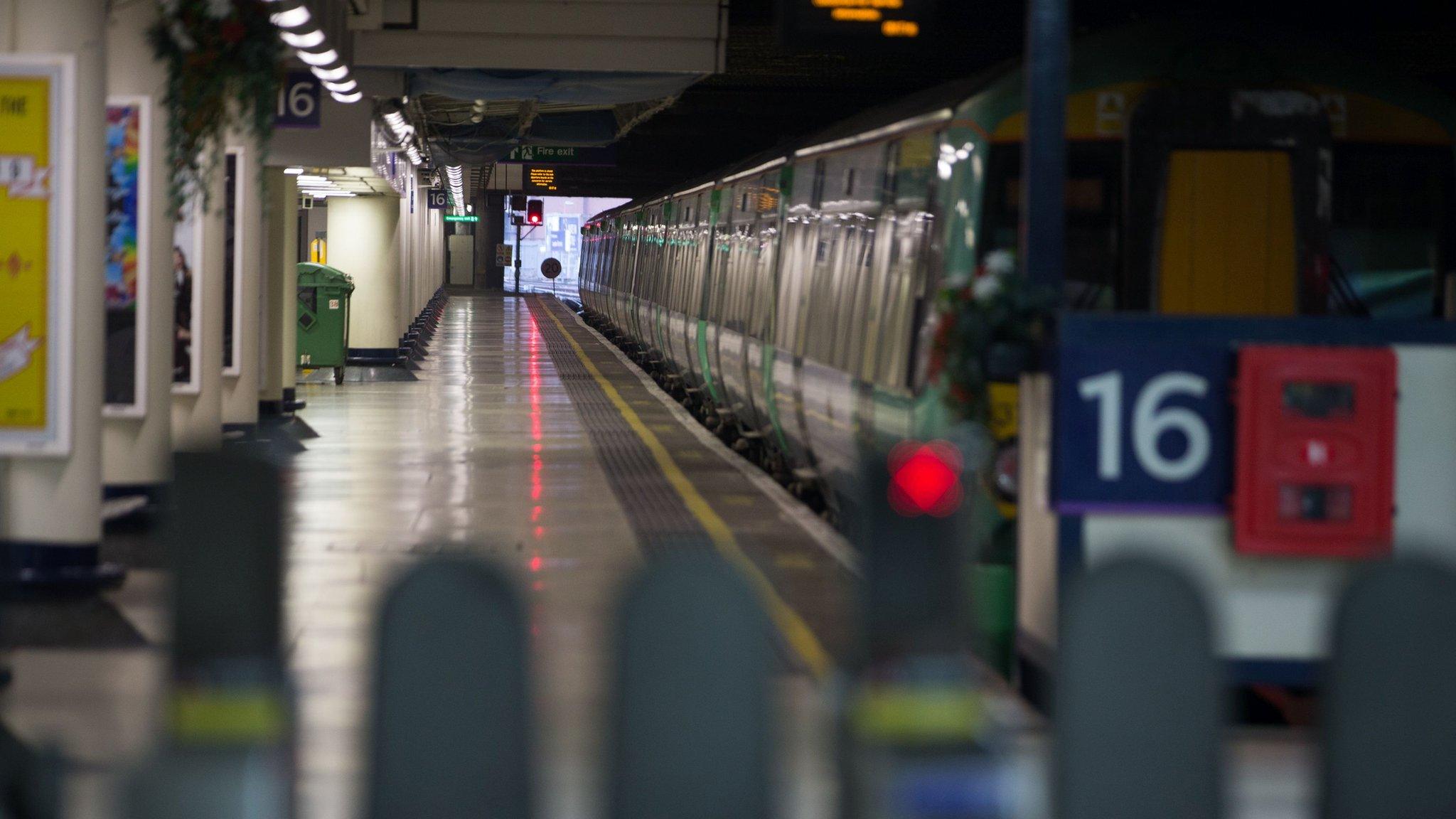
- Published31 December 2016
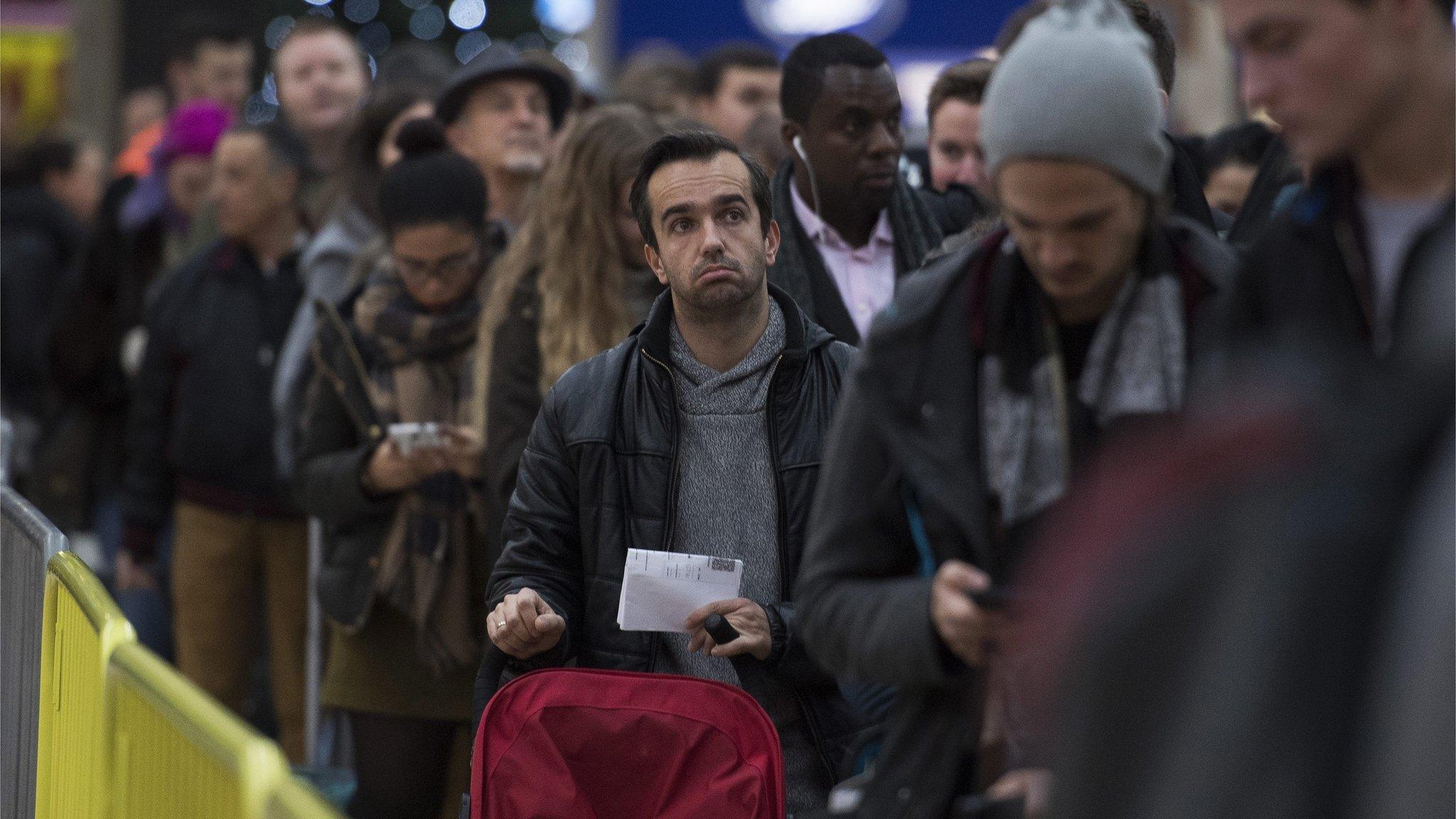
- Published19 January 2017
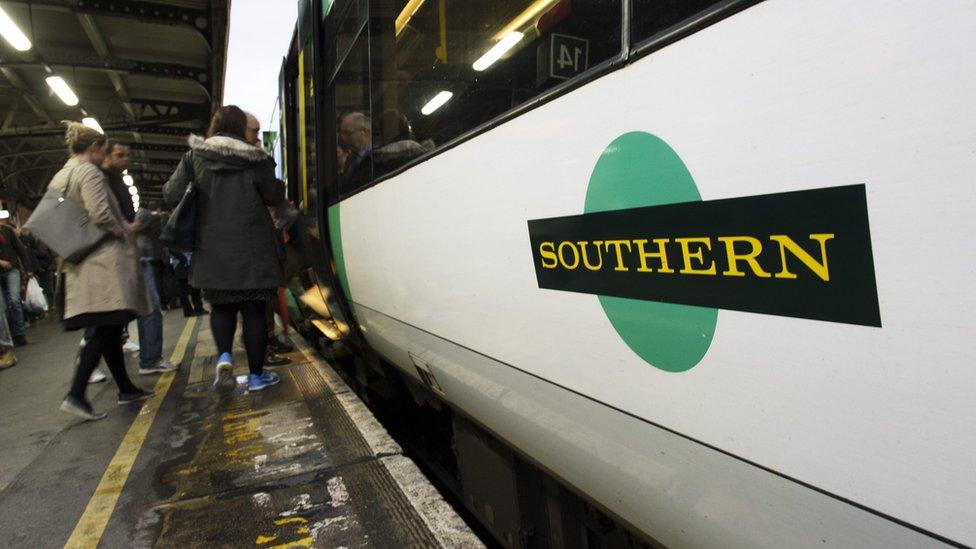
- Published13 December 2016
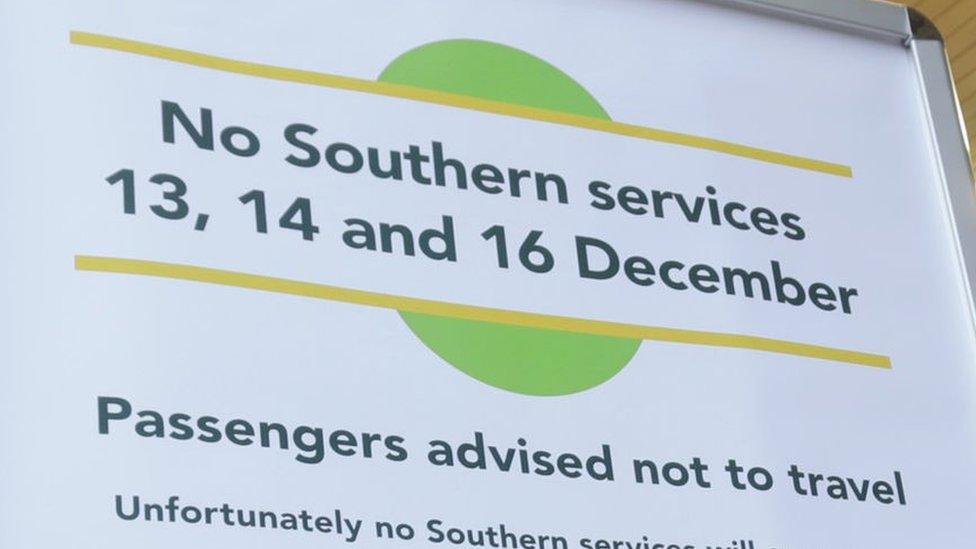
- Published13 December 2016